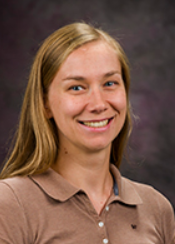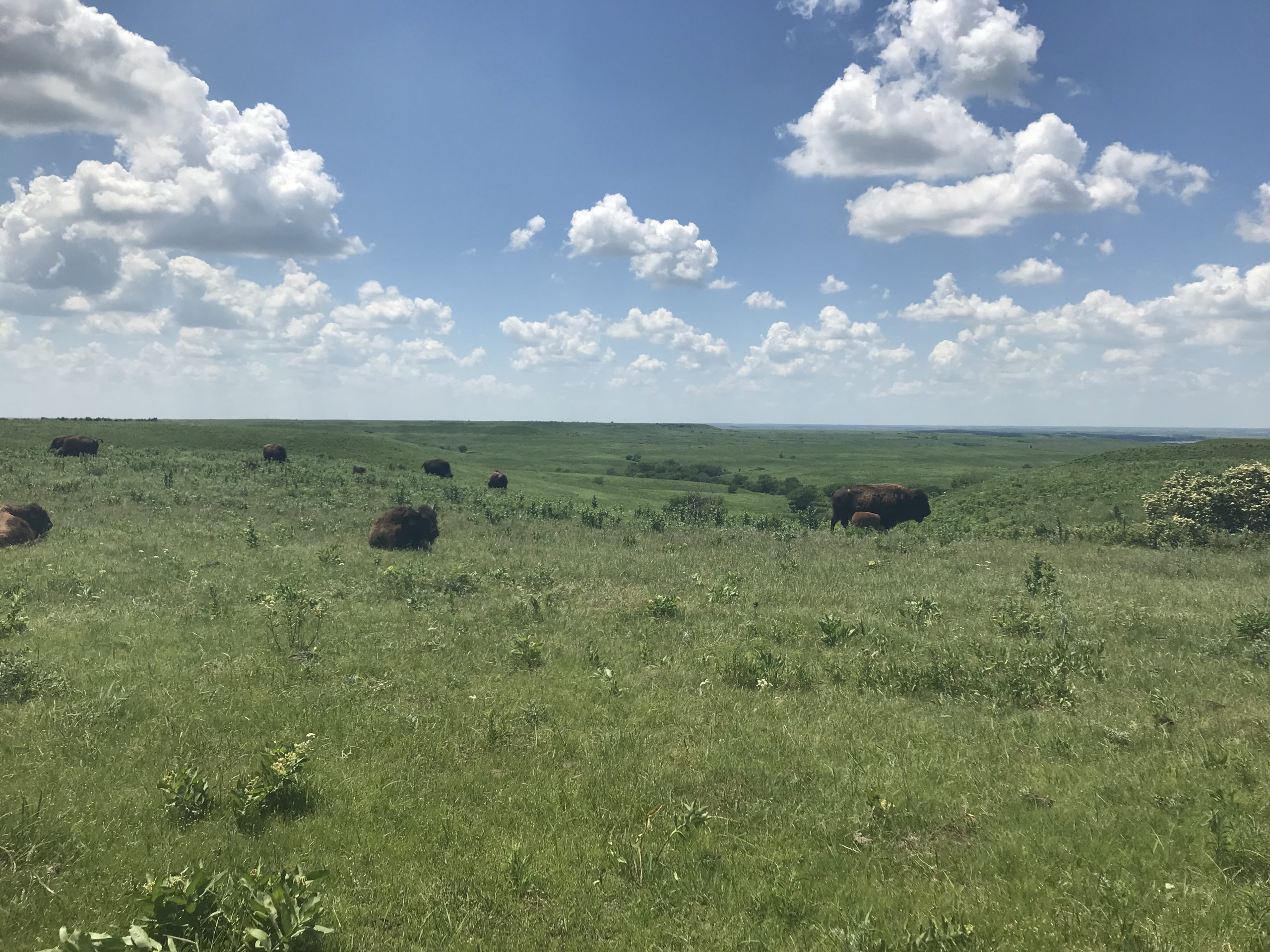
Dr. Lydia Zeglin
KSU

Konza prairie photo by Dr. Lydia Zeglin
Dr. Lydia Zeglin, assistant professor of biology at Kansas State University (KSU) and aquatic co-team leader on the Kansas NSF EPSCoR RII Track-1 Award OIA-1656006: Microbiomes of Aquatic, Plant, and Soil Systems across Kansas (MAPS) project was awarded the National Science Foundation’s Faculty Early Career Development Program (CAREER) to research interactions between the tallgrass prairie’s bison and cattle and soil microbes. The NSF CAREER awards are prestigious NSF awards granted to early-career faculty who have the potential to serve as academic leaders in research and education and whose research leads to advances in the mission of their department and institution. The title of Zeglin’s project is CAREER: How do microorganisms and grazing mammals interact at local to regional scales to regulate grassland nitrogen cycling processes?
The following is an excerpt from her proposal:
“Grassland ecosystems cover over a third of Earth’s vegetated surface. Except for those converted to agriculture, most grasslands are used for livestock grazing. For the first time, this NSF CAREER project will study interactions between grazing mammals and soil microbes, organisms that together control grassland nitrogen (N) cycling and soil fertility. Hypotheses to be tested include: 1) whether large grazers promote dispersal of soil microbes, and 2) whether this affects different steps of the soil N-cycle based on the diversity of microorganisms that control each step. To do this, project personnel, including students and citizen scientists, will work together to measure soil microbe biodiversity and N-cycling activity in bison- and cattle- grazed and ungrazed areas of tallgrass prairie. These experiments will be conducted across distances ranging from 10-cm (local soil microbial habitat) to 1000-km (Flint Hills, KS region). Results from this work will advance general knowledge of the factors regulating grassland soil fertility, including those supporting ecosystem N retention at local to regional scales. Understanding N retention is important for protecting public drinking water quality. Outcomes will also include broad and timely communication of this knowledge to students and citizens, and engagement of students and citizens in the scientific research process.”
Dr. Amit Chakrabarti, dean of the College of Arts and Sciences at KSU said the college ”is very proud of Dr. Zeglin not only for receiving this prestigious NSF CAREER award, but also for the societal and economic impact her work will bring to Flint Hills life and the Manhattan community.”
For more on Dr. Zeglin’s NSF CAREER project go to Award Abstract #1943492
Quote and Zeglin’s picture taken from K-State News and Communications Services article, Biology researcher receives NSF CAREER award to measure soil microbe, grazer interactions
